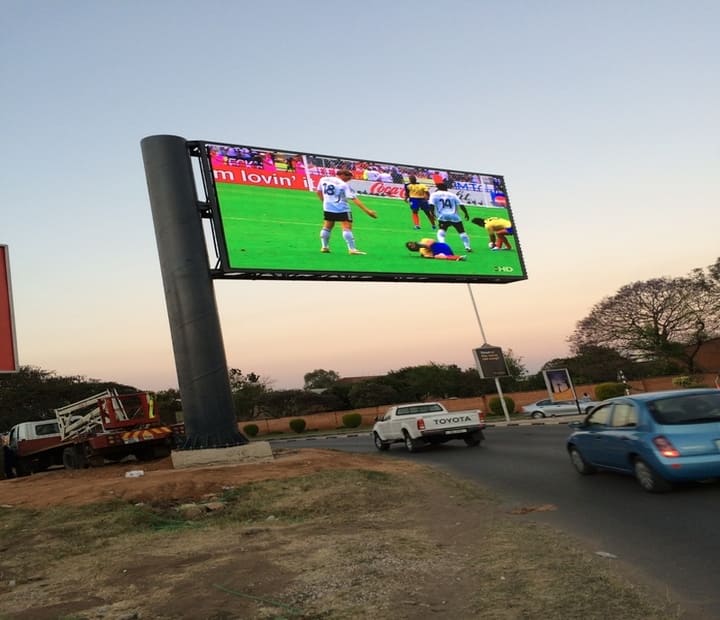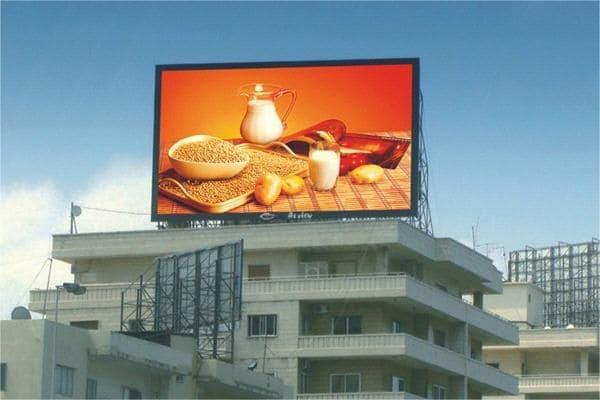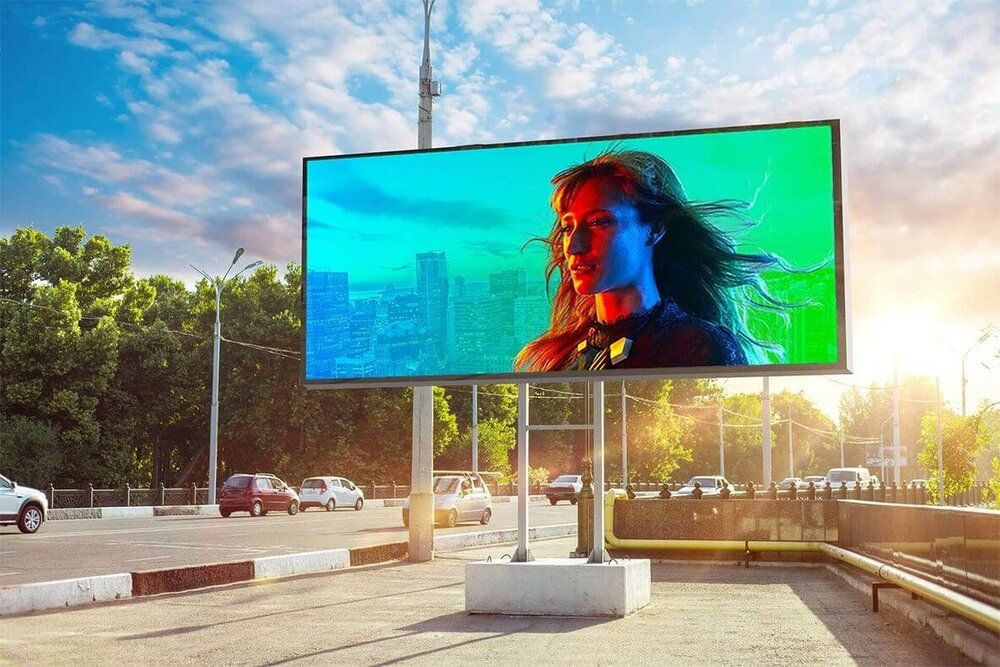In the ever-evolving landscape of marketing, LED advertising screens have emerged as powerful tools, transforming the way businesses communicate with their target audiences. These dynamic displays offer a visually captivating platform to convey messages, promotions, and brand narratives in ways that traditional methods cannot match. As the significance of LED advertising screens continues to grow in modern marketing strategies, it becomes imperative for businesses to harness their potential effectively.
However, the implementation of LED screens comes with its own set of challenges and potential pitfalls that, if overlooked, can diminish their impact and undermine the investment made. In light of this, businesses must navigate the complexities of integrating LED advertising screens into their campaigns with precision and foresight.
This article aims to shed light on the common mistakes that businesses often encounter during the implementation process and provide valuable insights to avoid them. By understanding these pitfalls, companies can not only sidestep costly errors but also optimize the effectiveness of their LED screens, ensuring a compelling and resonant impact on their target audience. Through this exploration, businesses can embark on a journey to unlock the full potential of LED advertising screens in enhancing brand visibility, engaging customers, and staying ahead in the competitive realm of modern marketing.
Absence of clear objectives can be a stumbling block that hampers the potential success of LED advertising screens. Before businesses embark on the implementation of these dynamic LED display screens, it is paramount to establish well-defined goals that align with broader marketing strategies.

Clear objectives serve as the guiding beacon for any LED advertising screens campaign. They not only provide a sense of direction but also ensure that the messaging resonates effectively with the intended audience. Without a solid foundation of objectives, businesses risk navigating in the dark, leading to a series of potential pitfalls that can compromise the overall success of the campaign.
One of the primary pitfalls linked to unclear objectives is the delivery of ineffective messaging. Without a precise understanding of what needs to be achieved, businesses may struggle to convey a compelling narrative through their LED screens. This lack of clarity can result in wasted resources, as the messaging fails to resonate with the audience and fulfill the desired outcomes.
To circumvent the pitfalls associated with vague objectives, businesses should embrace the SMART criteria when setting goals. SMART stands for Specific, Measurable, Achievable, Relevant, and Time-bound. This strategic framework ensures that objectives are not only well-defined but also practical and aligned with the overall marketing strategy.
Specific: Clearly articulate what the LED advertising campaign aims to achieve.
Measurable: Establish concrete metrics to gauge the success of the campaign.
Achievable: Ensure that the objectives are realistic and attainable within the given resources.
Relevant: Align the objectives with the broader marketing goals and the target audience's preferences.
Time-bound: Set a clear time frame for achieving the objectives, fostering a sense of urgency and accountability.
By adhering to the SMART criteria, businesses can transform abstract aspirations into tangible and actionable goals, ensuring that their LED advertising screens become potent instruments in conveying messages, driving engagement, and ultimately contributing to the overall success of their marketing endeavors.
Effective location selection stands as a pivotal factor in the success of LED advertising screens. The placement of these dynamic LED display screens plays a crucial role in determining their visibility, engagement levels, and overall impact on the target audience. Failure to choose suitable locations can result in missed opportunities and a diminished return on investment. This section delves into the ramifications of poor location selection, highlights common mistakes, and provides considerations for optimizing placement.
Selecting the wrong locations for LED screens can significantly undermine their potential impact. Whether obscured from view, overshadowed by competing visuals, or positioned in areas with low foot traffic, poor location choices can dilute the effectiveness of the advertising campaign. In essence, the success of LED advertising screens is inherently tied to their visibility, making location a critical element that warrants careful consideration.
Several pitfalls are associated with poor location choices, leading to reduced visibility and engagement. These include placing screens in areas with minimal foot traffic, overlooking the impact of ambient lighting on screen visibility, or neglecting the specific characteristics of the target audience frequenting a particular location. By sidestepping these common mistakes, businesses can ensure that their LED displays receive maximum exposure and captivate the intended audience effectively.

To optimize the impact of LED advertising screens, businesses must meticulously evaluate potential locations. This involves identifying high-traffic areas where the LED display screens can garner maximum attention. Moreover, understanding the demographics of the target audience is essential. Factors such as age, interests, and consumer behavior should guide location choices, ensuring that the LED screens resonate with the right audience.
Technical specifications form the backbone of any successful LED advertising campaign. These specifications encompass crucial details such as pixel pitch, resolution, brightness levels, and aspect ratio. Ignoring or overlooking these technical aspects can result in suboptimal performance, hindering the screens from delivering the intended visual impact.
Mismatched technical specifications can manifest in various ways, impacting the overall effectiveness of LED display screens. Content resolution disparities may lead to pixelation, compromising the visual quality of displayed messages. Inconsistent brightness levels can result in screens being either too dim or glaringly bright, diminishing visibility and engagement. Aspect ratio discrepancies may distort content, detracting from the intended visual appeal. Addressing these pitfalls requires meticulous attention to detail in aligning content creation with the specific technical parameters of the LED screens.
To navigate the complexities of technical specifications, collaborating with experienced professionals becomes paramount. Working with experts ensures a thorough understanding of the requirements and guarantees proper integration of LED screens into the advertising infrastructure. Professionals can offer insights into the ideal specifications for specific environments and audience engagement, Custom led screen to meet the unique needs of each campaign.
Kingaurora provides custom led display panel solutions that adhere to the highest technical standards. Their expertise extends from high-resolution screens to energy-efficient displays, ensuring that businesses can leverage the full potential of LED advertising with confidence.

As a leading LED display manufacturing factory in China, Kingaurora's dedication to technical precision, coupled with a diverse range of customizable solutions, positions them as a leader in the industry. By choosing Kingaurora, businesses not only secure top-tier LED display technology but also benefit from a collaborative partnership that prioritizes technical excellence, ensuring the optimal performance of LED advertising screens.
Businesses often fall into the trap of overlooking regular maintenance, inadvertently inviting malfunctions that can tarnish the image of their brand. neglecting the maintenance and upkeep of LED advertising screens can prove to be a costly.
The allure of LED screens lies not just in their vibrant displays but also in their reliability. However, this reliability is contingent upon regular maintenance. One of the common mistakes businesses make is underestimating the importance of routine upkeep. Over time, dust accumulation, environmental factors, and wear-and-tear can take a toll on the screens, leading to issues such as pixel malfunction, color degradation, and overall diminished performance.
| Maintenance Aspect | Description |
|---|---|
| Scheduled Inspections and Cleanings | Regularly schedule inspections to identify and address potential issues before they escalate. Periodic cleanings, both internal and external, can prevent dust buildup and preserve the clarity of the display. |
| Software Updates | Stay abreast of software updates provided by the manufacturer. Keeping the firmware and software up-to-date ensures compatibility with evolving technologies and enhances the overall performance of the LED screens. |
| Climate Considerations | Acknowledge the impact of environmental conditions on the screens. In harsh weather, protective measures may be necessary to shield the screens from elements such as rain, extreme temperatures, or excessive sunlight. |
| Prompt Repairs | In the event of malfunctions or damages, prompt repairs are crucial. Establish a relationship with a reliable repair service or the manufacturer to address issues swiftly and minimize downtime. |
| User Training | Educate staff responsible for the screens on proper usage, handling, and basic troubleshooting. This proactive approach can prevent avoidable mishandling and contribute to the overall longevity of the LED displays. |
The success of LED advertising screens hinges not only on their technical specifications and strategic placement but also on the quality and appeal of the content displayed. Compelling content is the driving force behind capturing audience attention and delivering a memorable message.
Content serves as the heartbeat of any LED advertising campaign. It is the conduit through which brands communicate their messages, evoke emotions, and establish a connection with their audience. Compelling content goes beyond mere visuals; it tells a story, conveys a brand's personality, and leaves a lasting impression on viewers. The power of LED screens lies in their ability to showcase dynamic and engaging content, making it imperative for businesses to prioritize the design and message conveyed.
Despite the potential for captivating visuals, businesses often make common mistakes in content design that undermine the effectiveness of their LED advertising screens. These may include cluttered layouts, overly complex visuals, poor color choices, and a lack of a clear call-to-action. These missteps can result in confusion, disengagement, and a missed opportunity to make a meaningful impact.
| Content Design Guideline | Description |
|---|---|
| Clarity and Simplicity | Keep the message clear and concise. Avoid clutter to ensure the audience quickly grasps the key information. |
| Eye-Catching Visuals | Use high-quality, attention-grabbing visuals aligned with the brand and message. Vibrant colors and crisp imagery enhance visibility. |
| Dynamic Content | Leverage the dynamic capabilities of LED screens. Incorporate animations, motion graphics, and dynamic transitions for a visually engaging experience. |
| Brand Consistency | Maintain consistency with brand guidelines, including color schemes, fonts, and overall aesthetic. Consistency builds brand recognition and reinforces messaging. |
| Clear Call-to-Action | End the content with a clear and compelling call-to-action. Guide the audience on desired next steps, such as making a purchase, visiting a website, or engaging on social media. |
1.Top 5 led screen manufacturers in world
2. Custom LED Display Screen of any Size and Shape
3. How many colors can an LED display

3th Building,Gaosite Zone Pingshan
New District, Shenzhen

sevice88@kingaurora.com
3th Building,Gaosite Zone Pingshan
New District, Shenzhen